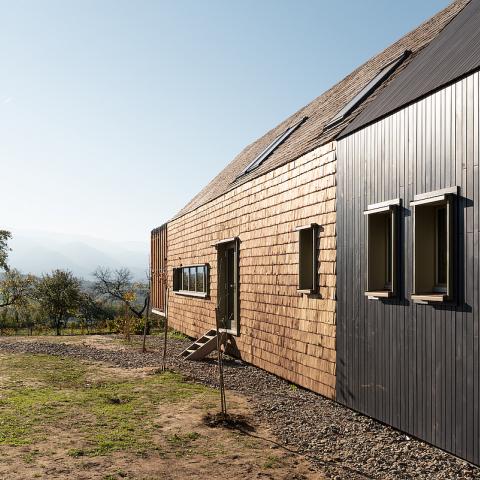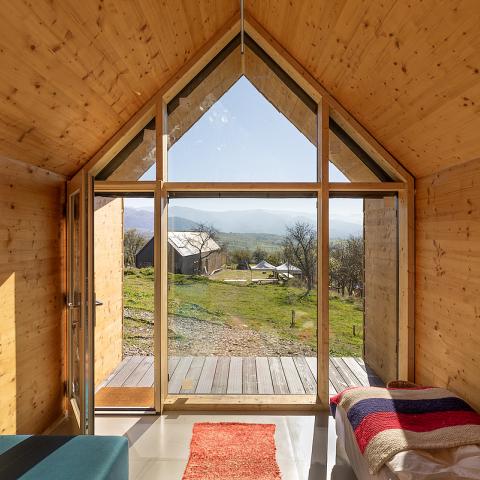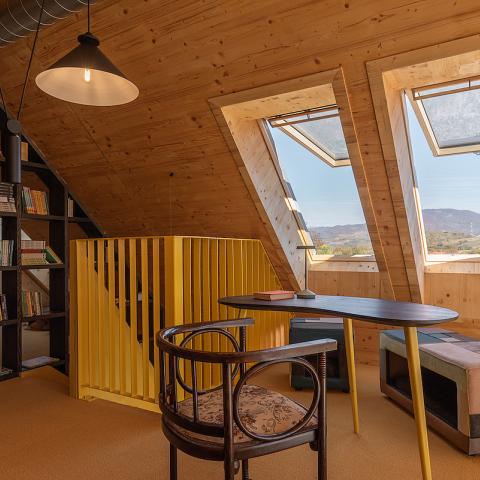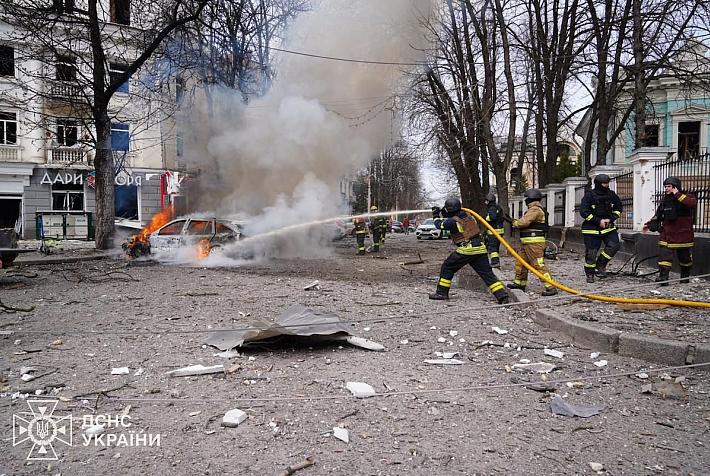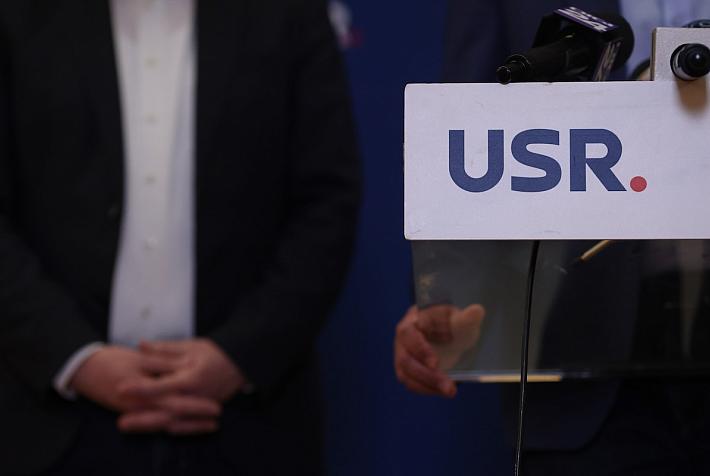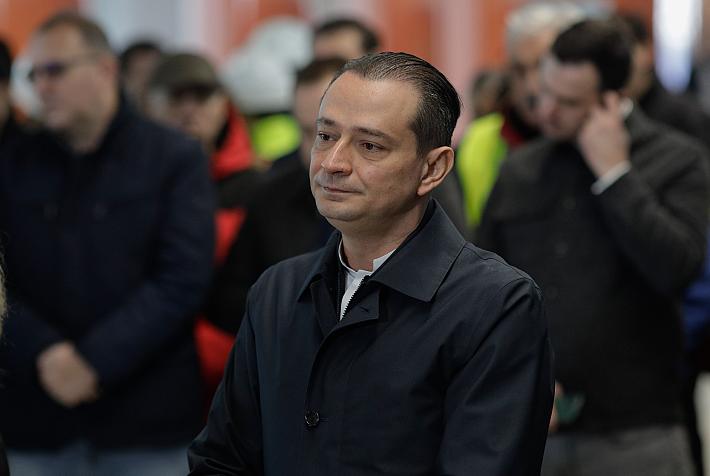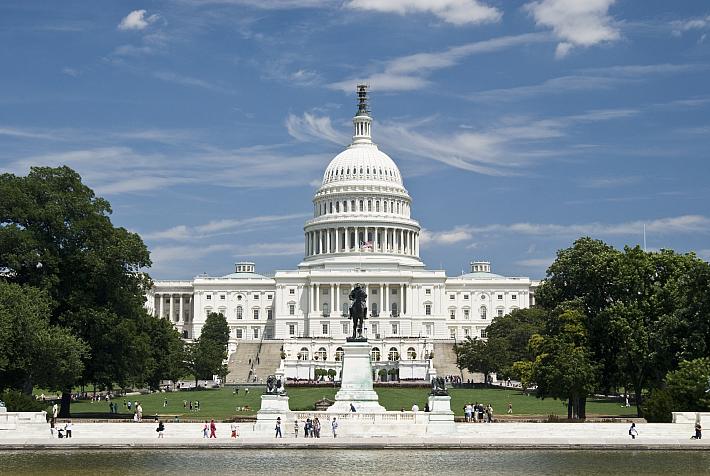WWF opens rural eco-hub in Romania’s Carpathian Mountains
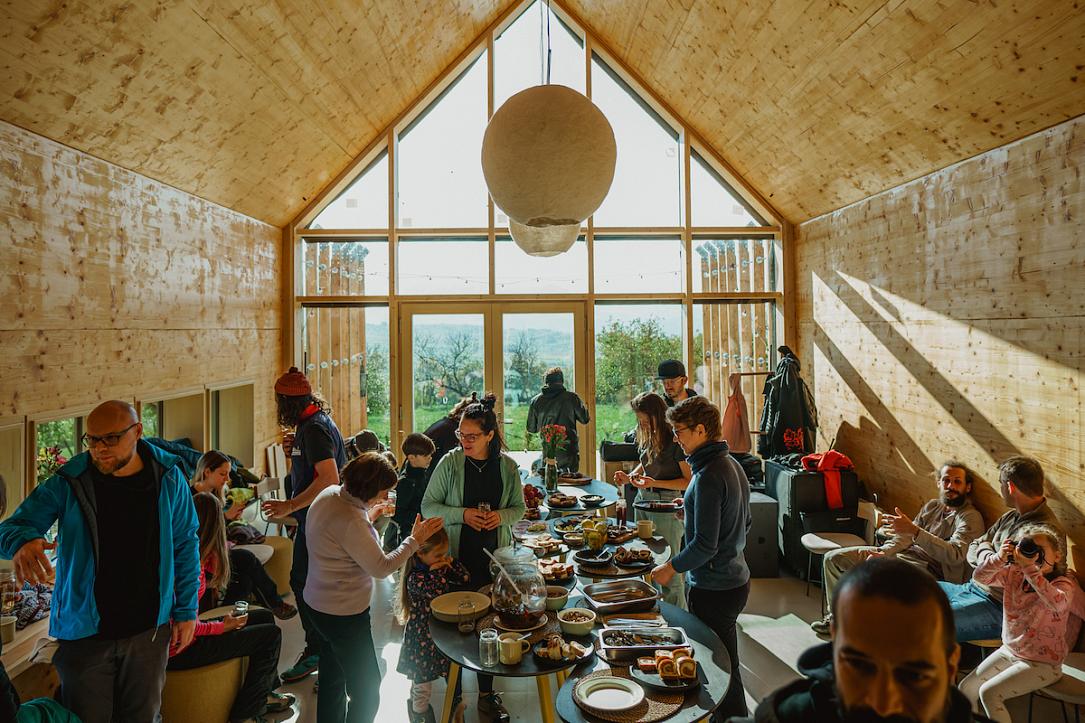
WeWilder, a rural eco-hub built entirely of wood at the foothills of Țarcu Mountains, was inaugurated after about three years of work. A project of WWF Romania, the campus is located in the vicinity of Armeniș, in the most forested county of Romania - Caraș-Severin, where the first bison were released eight years ago under a WWF/Rewilding Europe/Armeniș City Hall partnership.
The campus aims to be an example of sustainable, cement-free wood construction that emphasizes traditional practices and low-impact materials.
"In a 1.5-hectare orchard, the campus will be the starting point for nature exploration experiences and will host meetings for teams in search of ideas for the future, in close collaboration with the local community," WWF Romania said.
The WeWilder campus consists of the main building, named Zâna (the Fairy), and three tiny-house cottages. Zâna looks like a barn but has a large glass wall overlooking the hills of Armeniș. It houses a multi-purpose room intended for meetings, collaboration and serving meals, and a library in the attic. There is also a community kitchen where various goodies can be made from local organic ingredients.
Each cottage is oriented towards a cardinal point to benefit from different light and landscape experiences: the Țarcu Mountains, the small-scale agricultural landscape of Armeniș or the hills with meadows and orchards. The sanitary installations are designed to consume an optimal volume of water, and the thermal insulation allows a minimum consumption for heating in winter or cooling in summer. They are covered with roof shingles to meet the traditional culture and to blend into their surroundings over time, according to the idea of "invisible architecture" to which the entire campus subscribes. (see more photos below)
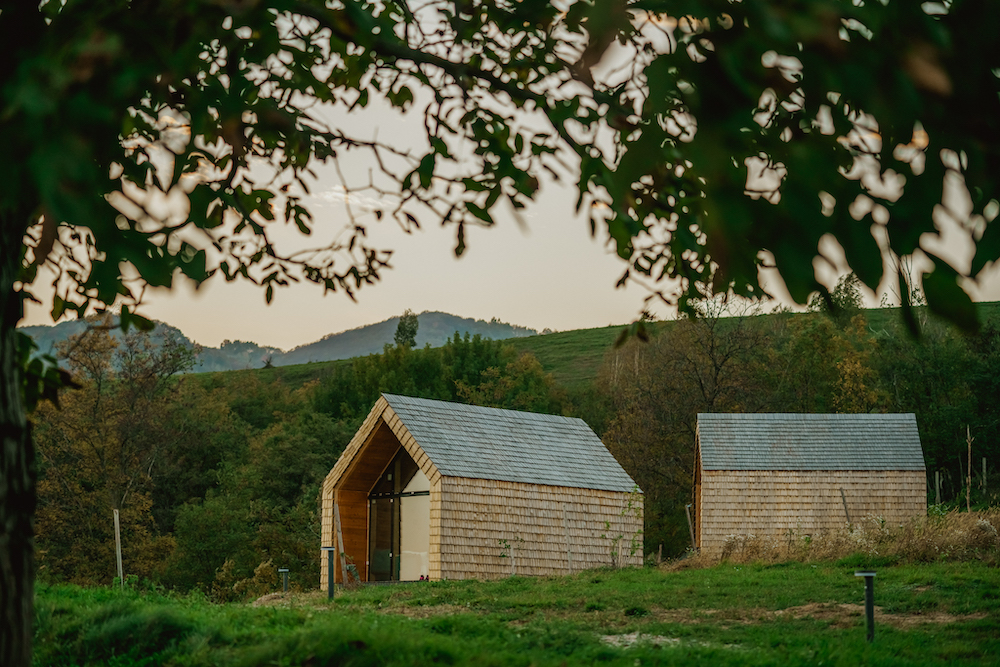
In addition to using wood in as many forms as possible (structure, coverings, thermal insulation, carpentry and interiors), the campus concept cultivates the inclusion of locally sourced design as a way to introduce circular economy into the region and support small producers.
According to WWF, WeWilder will operate as an eco-tourism agency for immersive nature experiences. The campus can be booked for coworking or gastronomic events and individual vacations.
"333 people worked on this campus. Some are from Armeniș, some came from Bucharest, Iași or Sighetul Marmației, even from other countries and faced the heat of summer, the rains of autumn and the surrounding clay to get here today. WeWilder is the testimony that each of us, from civil society and nature conservation organizations to authorities or companies eager to leave the legacy of a healthy planet for future generations, must innovate but also roll up our sleeves for ideals that are often left on paper. We are confident that through this nest, we can multiply the benefits of nature for community members and future generations in Armeniș commune and the region," said Oana Mondoc, project initiator and WWF Innovation and Community Development Manager.
In her turn, Orieta Hulea, CEO of WWF Romania, said: "WWF has taken a big step outside its comfort zone to co-create an alternative and green micro-economy around free-roaming bison, working with community members. Only by getting everyone involved can we have a long-term impact and form mindsets that make conservation work part of the identity of local communities."
WeWilder was built in-house by WWF Romania and was started thanks to funding of USD 200,000 and the support of the Flex Foundation. The investment amounted to approximately EUR 350,000, part of which was supported by WWF, part by an investment from Rewilding Europe Capital, and part with support from companies.
irina.marica@romania-insider.com
(Photos: WWF Romania; credit: Vlad Braga, Marius Vasile)






